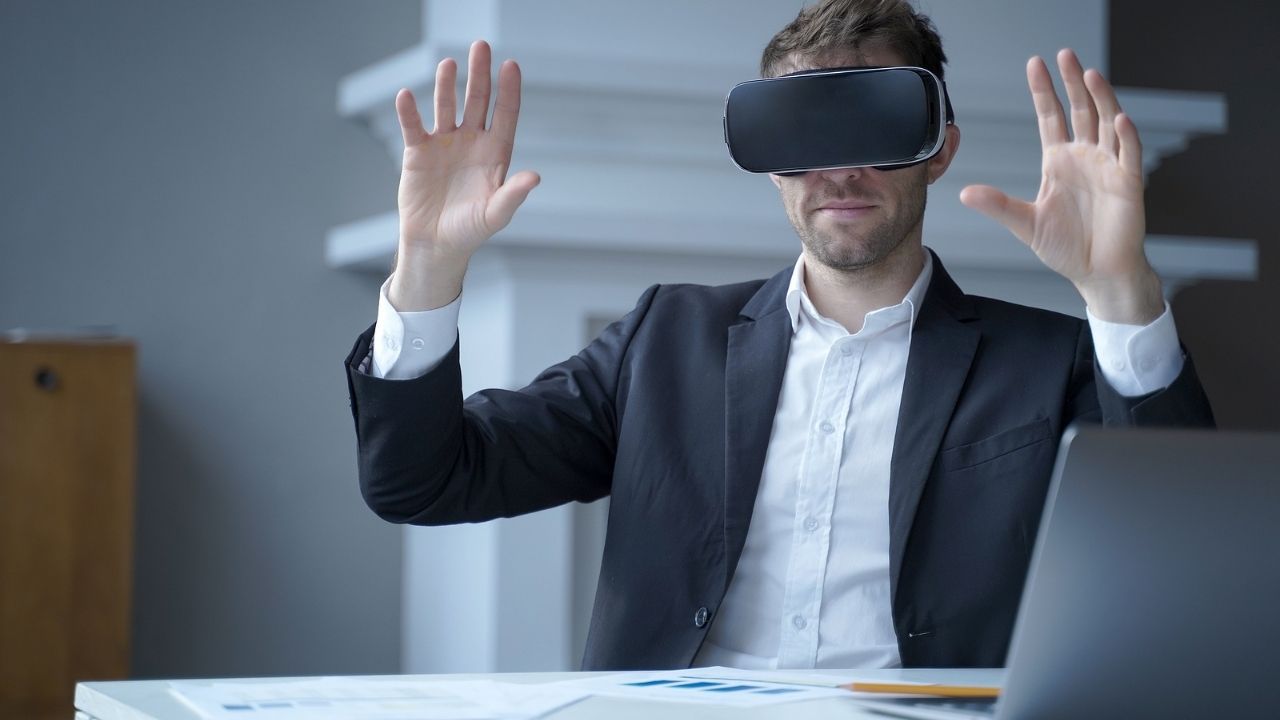- Virtual reality can help unconscious bias training be more effective.
- Morehouse College has partnered with Google to create anti-bias and de-escalation training for police and law enforcement agencies through a VR program.
- Leaders, managers, and employees can now immerse themselves in a world of VR where they can experience or witness biased incidents.
On average, nearly one-third of adults surveyed in the United States, United Kingdom, France, and Germany have experienced or witnessed racism in the workplace. That kind of environment can make it harder to retain staff from ethnic minorities.
We now know that virtual reality (VR) can be effectively used to train employees, but can it help with anti-bias training?
When used alongside unconscious bias training, VR can:
- Show men what it is like to be on the receiving end of everyday workplace sexism
- Show white people how racism is experienced by Black and Minority Ethnic people
- Give able-bodied people an insight into navigating the workplace as a person in a wheelchair
- Let executives and managers experience work as a junior team member.
Research from PwC has shown that VR soft skills training is highly effective, with 40% of students using VR feeling more confident in their skills after training than classroom-only students, and 35% more than e-learners.
People using VR also felt 3.75 times more emotionally connected to their course content than classroom learners, and 2.3 times more than e-learners. 75% realized they were not as inclusive as they thought they were – a crucial step if unconscious bias training is to be effective.
VR training for racial bias
VR training can be an intangible but invaluable way to administer anti-bias education, according to Megan Kollar Dwyer, director of global diversity, inclusion and belonging at software company ServiceNow.
Regardless of identity, ServiceNow employees run through a VR simulation as a person of color experiencing bias, while a white person on the hiring team and another white employee bear witness to the tense interview experience. This helps with a facet of diversity and inclusion training that Dwyer refers to as “empathy-building.”
Morehouse College has partnered with Google to create anti-bias and de-escalation training for police and law enforcement agencies through a VR program.
“This technology, in combination with strong anti-bias training, not only has the potential to reduce racial and ethnic disparities in policing but also enhance the life outcomes of historically marginalized groups in many other areas,” Bryant Marks, Ph.D., associate professor at Morehouse College and founder and principal trainer at the National Training Institute on Race and Equity said in an official statement.
The program uses recent advances in voice recognition, natural language processing, and VR to provide law enforcement instructors and criminal justice scholars with an immersive environment to train and study officer performance.
Equal Reality’s VR learning experience allows employees to learn what it is like to experience discrimination or inappropriate behavior, and identify bias when they see it.
Users can also practice making decisions in real time, and rehearse challenging conversations (like management performance reviews, breaking bad news, difficult conversations) by experiencing the situation from the perspective of multiple people.
This type of training is extremely effective: 99% of Equal Reality’s users understand what discrimination feels like.
VR training for racism and sexism
The company Reverto has developed VR solutions to fight against stereotypes at work by putting employees in the shoes of a young female executive in a company. This experience is completed by an interactive module in VR to look back at the situations experienced, and then the laws and sanctions are explained.
American startup Vantage Point has a training program to tackle racial discrimination in the workplace. Initially, Vantage Point focused on providing anti-sexual harassment training for companies, but now it covers all kinds of bias, from gender inequality to bullying based on sexual orientation or race.
The company offers courses on diversity, inclusion and unconscious bias. Using VR headsets, employees are immersed in scenarios based on real events, where they watch a scene of discrimination unfold and are asked how they would respond.
Vantage Point is using virtual reality to aid in anti-sexual harassment training. Leaders, managers, and employees can now immerse themselves in a world of VR where they can experience or witness sexual harassment. Then through a series of games, tests, or quizzes, they can learn how to deal with the situation.
Morgan Mercer, the company’s founder, is a biracial woman who has been subjected to both racism and sexism in the workplace. She wants people who haven’t had these experiences to understand how it feels, and she believes VR technology is invaluable in getting the message across.
Can VR actually change behaviors and change attitudes?
Mercer believes so.
“You learn through adversity, you learn through discomfort, ultimately adversity and discomfort are what caused you to look inwardly and really question yourself. And that’s really where you shift your belief system. So through changing your heart, through changing your mind, then you change your behaviors. You can’t shift your behavior if you don’t shift your belief system or your values.”



 Dr. Gleb Tsipursky – The Office Whisperer
Dr. Gleb Tsipursky – The Office Whisperer Nirit Cohen – WorkFutures
Nirit Cohen – WorkFutures Angela Howard – Culture Expert
Angela Howard – Culture Expert Drew Jones – Design & Innovation
Drew Jones – Design & Innovation Jonathan Price – CRE & Flex Expert
Jonathan Price – CRE & Flex Expert












